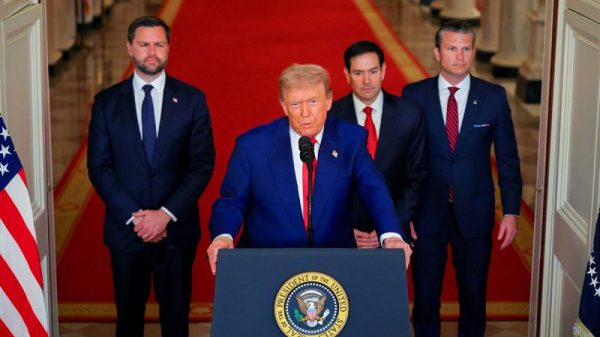On June 3, Keith Johnson of Foreign Policy speculated that the Trump administration, after two bruising court defeats, was eyeing Section 122 of the 1974 Trade Act—a clause that has never been used—to keep its tariff war alive. The provision allows for up to 15 percent tariffs to address “balance-of-payment” emergencies, barring Congress from intervention for up to five months.
Trade is just one sector in which Congress has granted the president virtually unilateral authority; similar cases include immigration and industrial policy. Both followed a similar script, with presidents granted broad powers for catastrophes both real and imagined.
This creeping presidential latitude did not appear overnight; its roots trace to the Founding era, when Alexander Hamilton’s Federalist 70 extolled the virtues of “energy in the executive.” Hamilton argued that providing the executive with some leeway would buy Congress time as it gathered and deliberated; speed, not policy preference, was to be the motive. Now, however, presidents use the freedom Congress has afforded them to circumvent legislative deadlocks and strong-arm trading partners. What began as a fire axe behind glass has turned into a Swiss army knife for routine politics.
That evolution is easy to spot in the historical record. The 1950 Defense Production Act, born to rush steel and rubber to Korea, now underwrites peacetime interventions from baby-formula shortages to COVID-19 swabs. Moreover, Section 232 of the 1962 Trade Expansion Act, intended to keep Soviet metal out of missile silos, propped up the 2018 tariffs on Canadian steel and aluminum. These episodes show how emergency statutes—drafted for specific, short-lived crises—can balloon into standing licenses far beyond their original scope. At the same time, Hamilton’s argument may have an element of truth—perhaps a few situations do require swift executive action. So when, if ever, should Congress delegate “emergency” power to the president?
Identifying hard-and-fast rules for executive authority is difficult, but certain changes might help: replacing elastic phrases like “national security” or “balance-of-payments” with concrete triggers; setting sunset dates that restore powers to Congress; and requiring presidents to identify why their actions meet statutory triggers. None of these measures is foolproof, but they potentially restore a measure of oversight without sacrificing the speed that Hamilton wanted.
A more aggressive reform would eliminate emergency powers entirely (since some presidents will inevitably cross anything less than a bright line). The objection to this approach is that, in some cases, a president might genuinely need emergency power. In those instances, however, Congress will likely vote such power quickly, since in true emergencies the facts are clear and convincing. This is what happened in response to Japan’s attack on Pearl Harbor in December 1941. The first fleet of Japanese bombers and fighters attacked at 1:48 p.m. EST on December 7, 1941; Congress voted for a declaration of war at 12:30 p.m. EST on December 8, less than 24 hours later. More broadly, the country thrived for many decades before the creation of most emergency powers. It can do so as well, going forward.
This article appeared on Substack on July 1, 2025. Jonah Karafiol, a student at Harvard College, co-wrote this post.
























